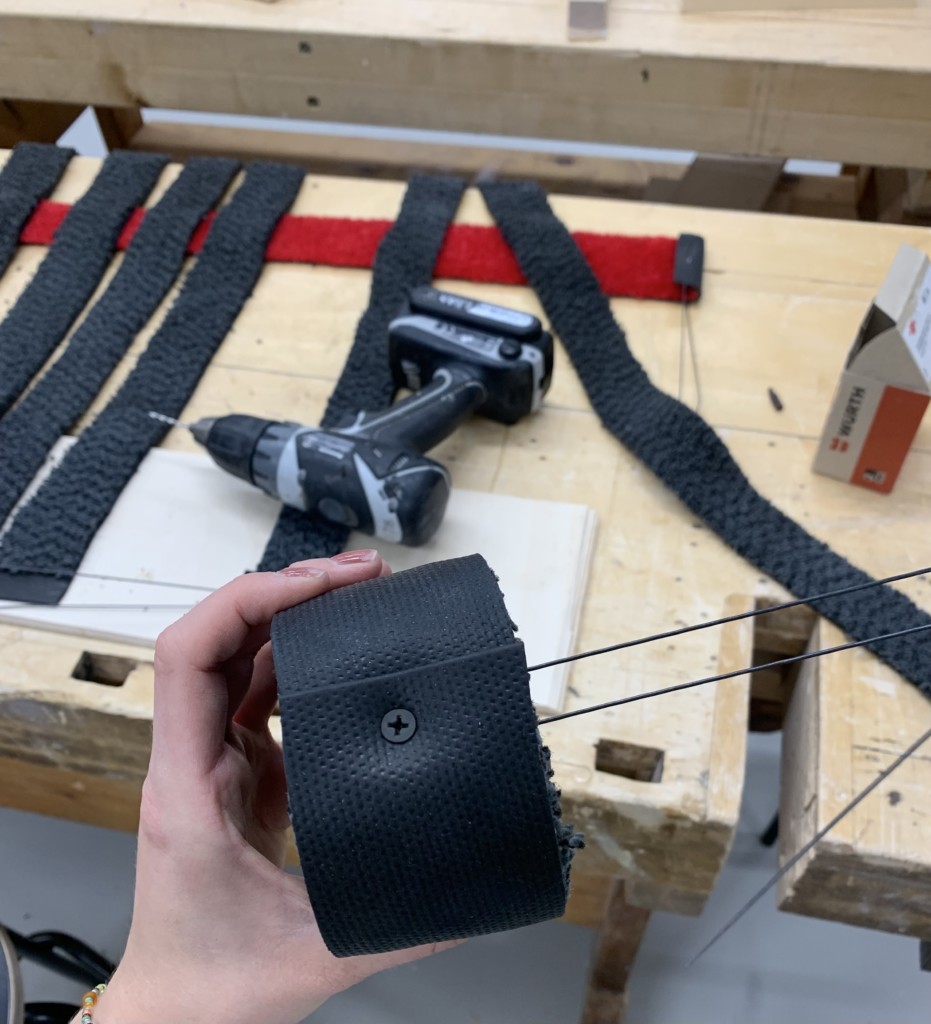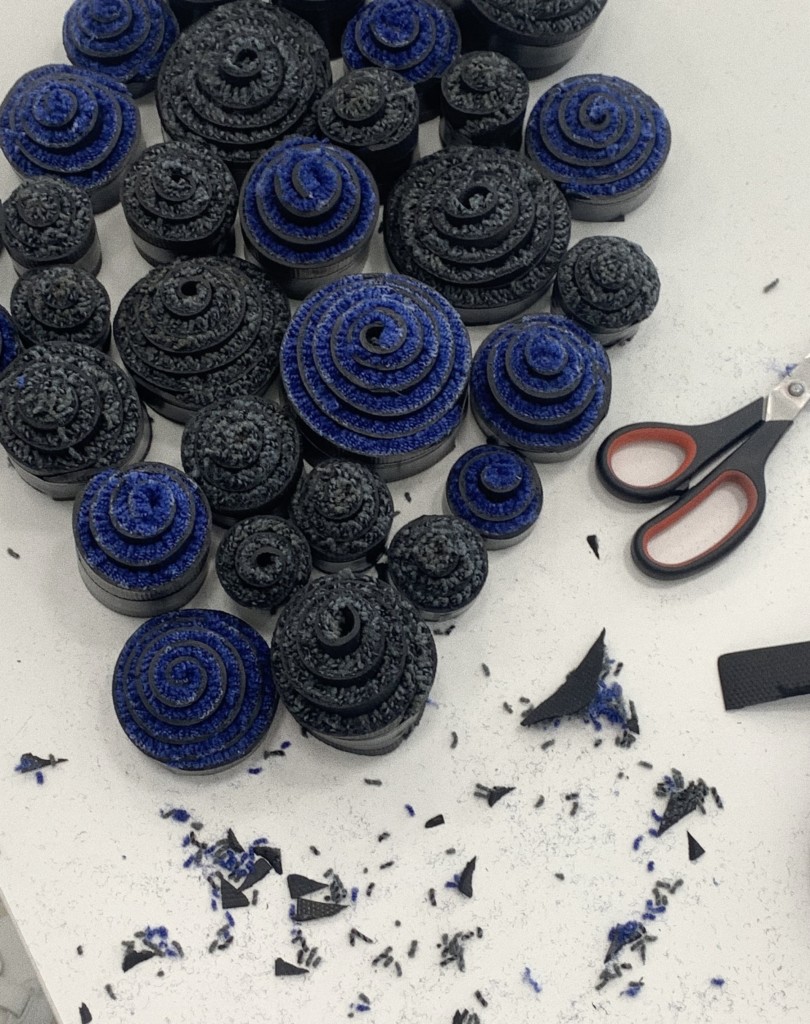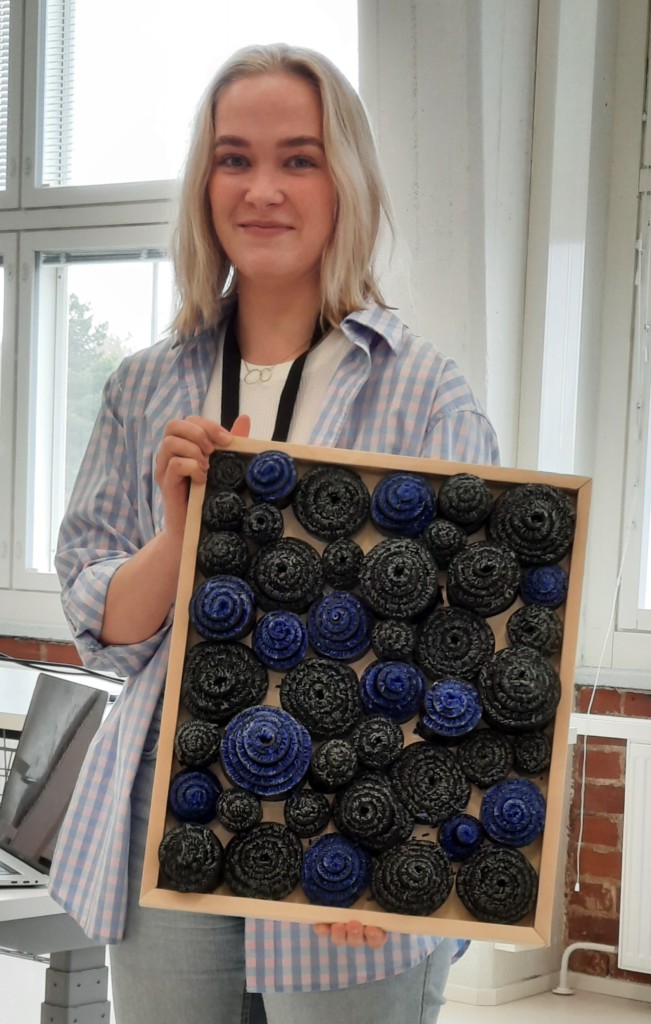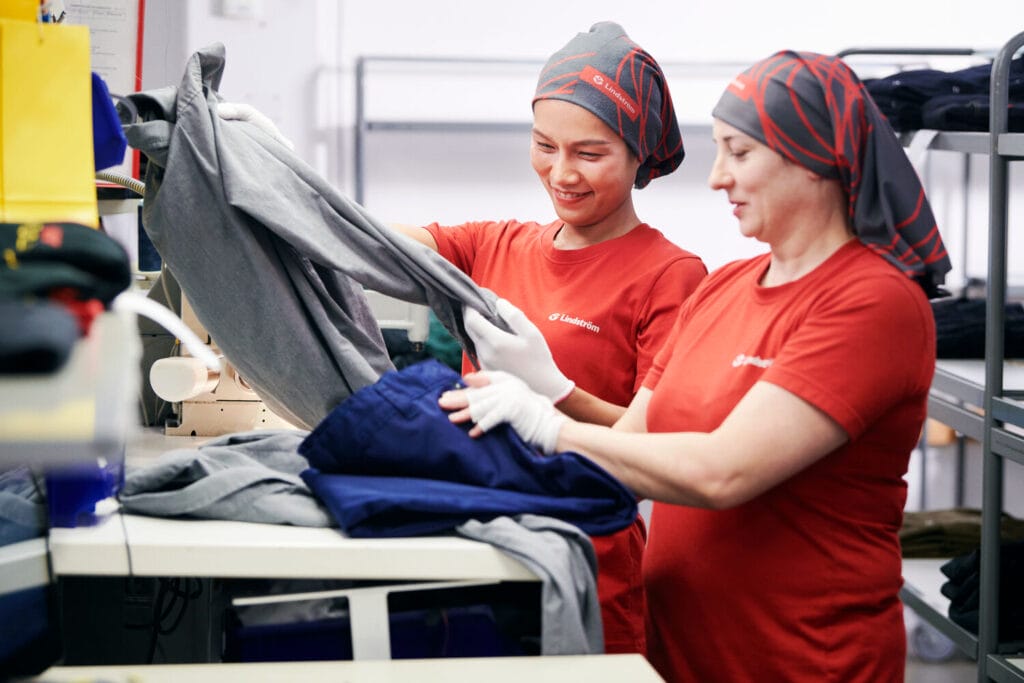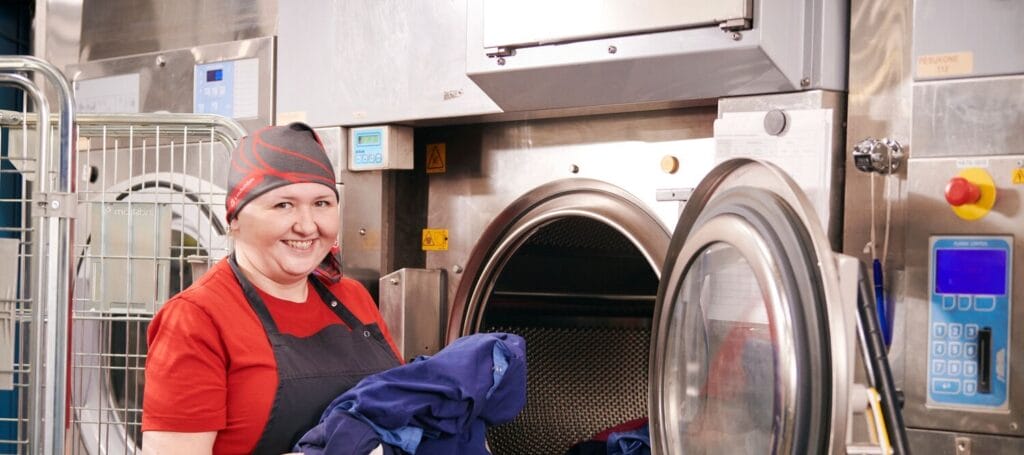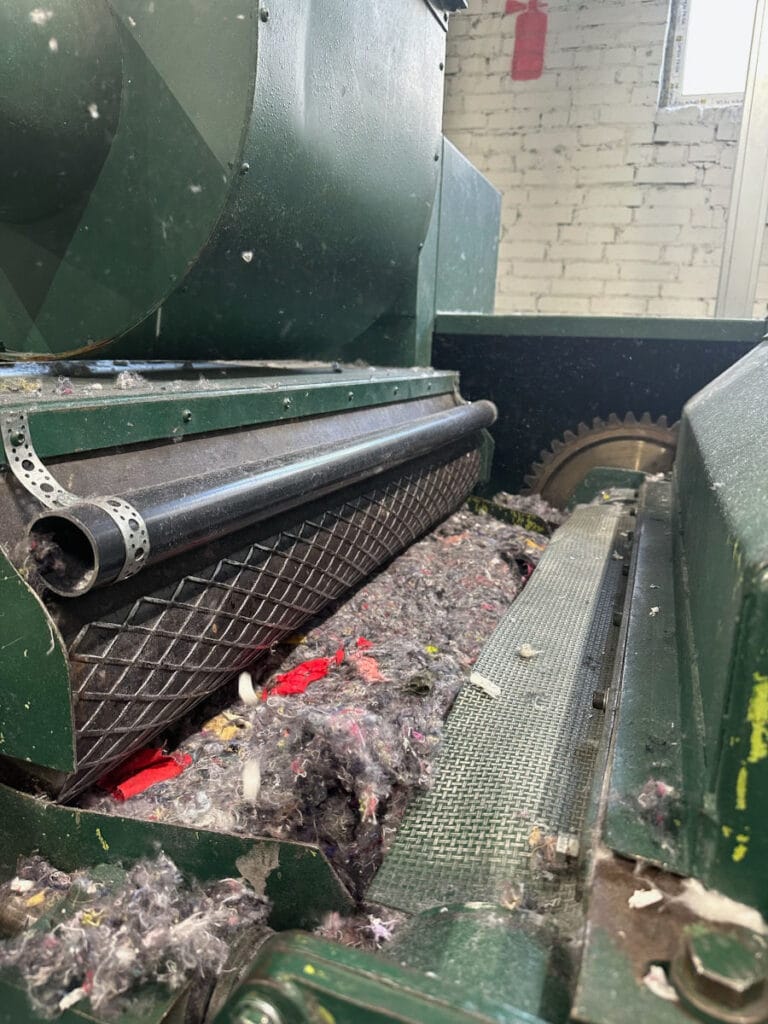
Student collaboration sparks ideas for reusing mats
Our eagerness to find solutions for recycling and reusing mats has brought about many promising collaborations. One of the most inventive approaches was developed by students in Finland, where we have most of our mats.
“We already have recycling solutions for our other major products such as workwear, hotel textiles and cotton towel rolls. But finding a solution for mats has been more challenging. Cooperation with universities provides us with fresh, out-of-the-box ideas about new recycling concepts,” explains Tero Oksanen, Manager of our Service Operations in Finland.
Brainstorming and innovating concepts
One of those collaborations was with LAB University of Applied Sciences. Students that participated in the project came up with many innovative concepts made of end-of-life mats, such as chairs, sofa cushions and acoustic elements. We had a chat with Maija Juhola, a student at LAB, whose acoustic panel and partition screen have gathered a lot of positive feedback.
“The project seemed very interesting with endless possibilities to create concepts. We started the project with extensive brainstorming, where no ideas were excluded yet. The material is well suited for acoustic purposes, so I came up with the idea of acoustic panels. I decided to cut the mats into pieces and roll the strips. I left gaps between the rollers to absorb sound,” Juhola describes.
Acoustic pieces of art for public places and offices
The concept required a lot of manual work and patience, but after designing the first piece, Juhola noticed that the product became like a work of art: “By changing the colour and layout of the rollers, you can create various interesting aesthetic ensembles. I think the product could be used in different spaces as an artistic acoustic element that highlights sustainable choices.”
Juhola also got the idea of a partition screen when she was thinking about the different possibilities of the product: “The partition screen works in the office spaces as an acoustic element which emanates a personal look and emphasises recycling.”
The appearance of the product and its adaptability has attracted interest and good feedback. “This is clearly something that we have not seen on the market before. I could easily see our customers getting excited about the idea that their end-of-life mats would continue their lives as pieces of acoustic wall art. This kind of element would certainly bring character to the spaces,” notes Oksanen encouragingly.
